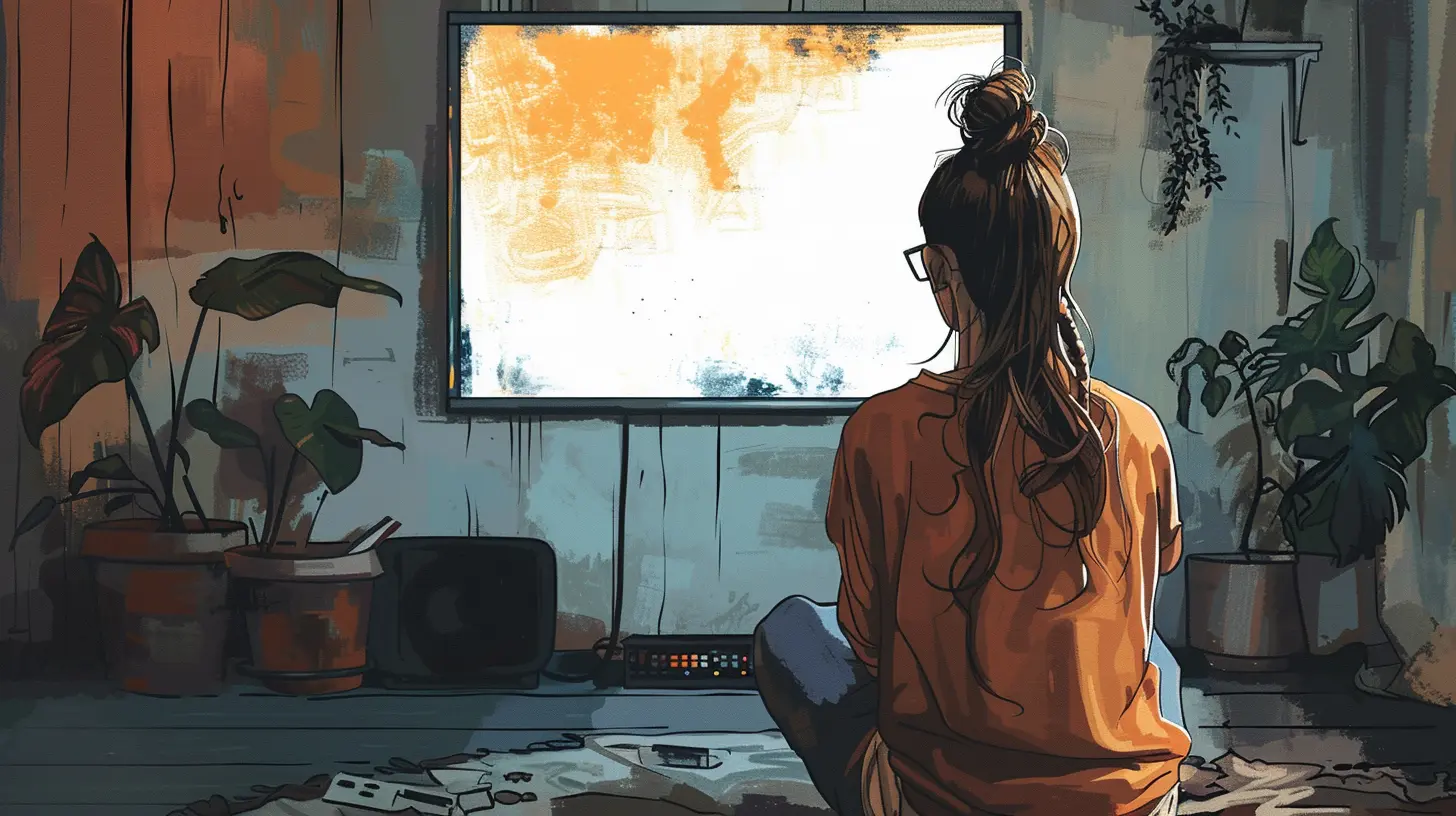Digital Detox: How Reducing Screen Time Enhances Well-Being
26 August 2025
Let’s be real for a second—we’re glued to our screens. Whether it’s scrolling endlessly on Instagram, answering late-night work emails, or binge-watching a whole season on Netflix in one sitting (we’ve all been there), our screens dominate our lives. But here’s the thing: all that screen time? It’s kind of messing with our minds.
Welcome to the world of digital detox. It’s not just another trendy buzzword floating around mental health blogs. Reducing screen time really can change your life—mentally, emotionally, and even physically. Let’s dive deep into why unplugging might be the best thing you can do for your well-being.
What Exactly Is a Digital Detox?
Okay, so what’s a digital detox anyway? Simple: it’s taking a break from digital devices—smartphones, tablets, laptops, and even TV. It's about setting boundaries with technology so you can reconnect with real life (remember that?).This doesn’t mean you need to throw your phone off a cliff or cancel your Netflix subscription forever. It's more about balance and being intentional about screen use. Even just cutting back a little can make a huge difference.
Why Are We So Hooked on Screens?
Let’s face it, our devices are practically extensions of ourselves. We use them for everything: work, entertainment, connecting with others, and even mindfulness apps. Ever reached for your phone just to check the time—and ended up on TikTok an hour later? Yeah, same.Tech companies design apps and platforms to keep us engaged (and addicted). Notifications, likes, endless feeds—it’s all part of the plan to keep our eyes glued to the screen. And while staying connected has its perks, it also chips away at our attention, our sleep, our relationships, and our peace of mind.
The Mental Health Impact of Too Much Screen Time
1. Anxiety and Depression
Ever notice how scrolling through social media sometimes makes you feel… kinda crappy? That's not a coincidence. Comparing your behind-the-scenes to everyone else's highlight reel can breed insecurity and self-doubt.And those constant pings from your phone? They keep your brain on high alert, triggering stress responses that can contribute to anxiety and burnout.
2. Poor Sleep
Here’s a fun fact: the blue light from screens tells your brain to stop making melatonin, the hormone that helps you sleep. So bingeing on Netflix or doom-scrolling before bed tricks your brain into thinking it’s still daytime. No wonder you’re tossing and turning.3. Brain Fog and Reduced Focus
Ever feel like your attention span is getting shorter? Like you can’t focus on one thing for more than a few minutes without checking your phone? That’s not just you. Screen overload scatters your focus and reduces your brain’s ability to concentrate deeply.
Benefits of a Digital Detox
So what happens when you actually take a step back from the screen? Spoiler alert: a lot of good stuff.1. Improved Mental Clarity
Disconnecting gives your brain some much-needed breathing room. When you’re not constantly distracted by notifications or messages, you regain the ability to focus and think more clearly.Imagine your brain like a snow globe. When you’re constantly shaking it with emails, pings, and reels, everything’s blurry. But let it settle, and suddenly—you see everything clearly.
2. Better Sleep (and More Energy!)
Unplugging even an hour before bedtime can improve sleep quality like crazy. Your mind winds down faster, your sleep cycles balance out, and you wake up feeling way more energized.3. Stronger Relationships
How many times have you had a “conversation” with someone while both of you were looking at your phones? Guilty. When you put the devices down, you become present. You listen more. You connect more. And honestly, the quality of your relationships skyrockets.4. Reduced Stress
Your phone is like a little stress magnet. Work emails, social pressures, never-ending news—it all adds up fast. A detox allows your nervous system to reset, and you’ll feel noticeably calmer and more grounded.5. More Free Time (Yes, Really!)
You’d be amazed how much extra time you have when your screen isn’t sucking you into the digital void. Suddenly you’ve got space in your day to read a book, go for a walk, or pick up a hobby you forgot you loved.Signs You Might Need a Digital Detox
Still not sure if you need a break? Here are a few red flags:- You check your phone first thing in the morning and last thing at night.
- You feel anxious when your phone’s not around.
- You find it hard to focus without checking your devices.
- You’re constantly comparing yourself to what you see online.
- You feel mentally worn out for no clear reason.
If even one of these resonates, a digital detox might be exactly what you need.
How to Start a Digital Detox (Without Going Cold Turkey)
Let’s be real—going full-on offline monk style isn’t realistic for most of us. But the good news? You don’t have to quit tech completely. Here are some simple steps to get you started:1. Set Tech-Free Zones
Start by keeping devices out of certain spaces—like the bedroom or dining table. These device-free zones help train your mind to disconnect and be present.2. Schedule Screen Time Breaks
Use “tech breaks” mindfully. Set specific times to check your email or scroll social media, and stick to them. You’re in charge, not your phone.3. Turn Off Notifications
Seriously—those little dings and vibrations are like mini panic attacks. Switch off non-essential notifications so you control your attention rather than letting your phone control you.4. Go Analog
Try using paper planners, printed books, or even a good old-fashioned alarm clock. Dialing back your dependency on devices can be weird at first, but it’s super freeing.5. Replace Screen Time with Real-Life Activities
Instead of scrolling in your downtime, try something else: cooking, walking, journaling, calling a friend, or doing nothing (yes, that’s allowed too).6. Try a Digital Sabbath
Pick one day a week—maybe Sunday—to go mostly screen-free. Think of it like a reboot for your mind (and your soul, honestly).What Happens During a Digital Detox?
At first? You might feel twitchy and restless. That’s normal. Your brain’s adjusting to fewer dopamine hits. But hang in there.After a couple of days, you’ll likely notice:
- You’re sleeping better.
- Your mood improves.
- You feel more focused and productive.
- You’re more aware of what’s around you.
- You remember what it’s like to be present.
You might even start to enjoy silence. Weird, right?
Real Talk: It's Not About Hating Technology
Let’s be clear—this isn’t about demonizing tech. Our devices help us connect, learn, and even support our mental health in some ways. But it’s about balance.Think of it like junk food. A little now and then? No big deal. But eating it 24/7? Probably not the best move for your well-being.
Same with screen time. It’s about being mindful, setting boundaries, and taking back control.
Final Thoughts: Hit Pause to Play Better
Life moves fast. Our screens make it feel even faster. Sometimes the best way to reconnect—with ourselves, with others, with the moment—is to unplug for a while.A digital detox isn’t about guilt or going off the grid forever. It’s about hitting “pause” when your soul needs a breather. So give it a try. Turn off the noise. Reclaim your peace.
Your mind (and your mood) will thank you.
all images in this post were generated using AI tools
Category:
Self CareAuthor:

Paulina Sanders
Discussion
rate this article
1 comments
Ashley McCloud
Embrace a digital detox for a healthier, happier you!
September 23, 2025 at 4:40 AM

Paulina Sanders
Absolutely! A digital detox can significantly improve mental clarity, reduce stress, and enhance overall well-being. It's time to unplug and recharge!


